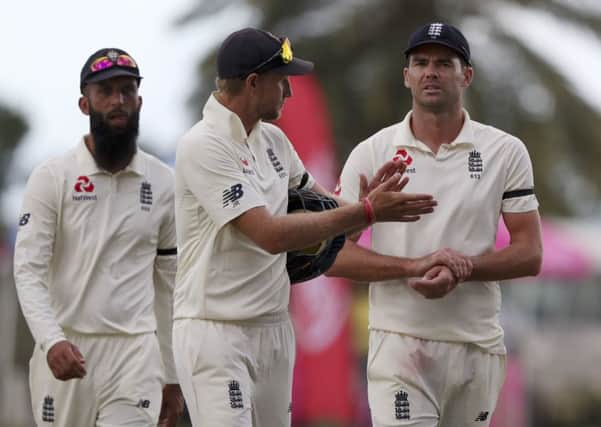Chris Waters – Reports of the death of Test cricket have been greatly exaggerated


But it is not only this series that is dying a death. According to Shashank Manohar, chairman of the International Cricket Council, Test cricket itself is “dying, to be honest”. Details of the funeral arrangements will be announced in due course.
Manohar’s warning, delivered during a visit to Bangladesh, should surprise no-one who has monitored recent events.
Advertisement
Hide AdAdvertisement
Hide AdAlthough Test cricket is still thriving in England and wherever they play, with thousands of supporters descending on the Caribbean for the current series, interest elsewhere has steadily declined as the T20 revolution has quickly gathered pace.
There is a huge wealth gap between India, England, Australia and the rest, which means that, for most countries who play it, Test cricket is not financially viable unless one of those three nations is involved.
It all boils down to money and television ratings, with T20 cricket generating most interest.
“Nowadays, people don’t have five days (of) time to watch a Test match,” said Manohar. “From ten to five, everybody has their own job to do, so it is very difficult for them to watch this game.
Advertisement
Hide AdAdvertisement
Hide Ad“T20s get over in three-and-a-half hours, like watching a movie. Therefore, it is picking up very fast.”
The solution, according to Manohar and his ICC colleagues, is the World Test Championship that starts this summer. This will see the top-nine ranked teams earning points over a two-year period, followed by a final to determine the champions.
On the face of it, this attempt to bring context to Test cricket in a desperate bid to save it is welcome and well-intended.
As Manohar reflected: “We are trying to see whether the Test Championship can generate interest, because Test cricket is actually dying, to be honest. So, to improve the situation, we are trying ways and means.
Advertisement
Hide AdAdvertisement
Hide Ad“The board directors came to a conclusion that if we start a Test Championship, it would keep Test cricket alive and generate more interest in the game.”
Fair enough, but the problem that this correspondent has always had with the idea is this: if we accept that people’s attention spans are declining to the extent that we now have 10-overs-a-side games, and shortly 100-ball cricket in this country, what hope is there that they are going to follow a tournament in which it takes two whole years to determine the winner?
When England play Australia this summer, do we suppose that anyone will really give a second thought to the fact that the result of the matches will go towards Test Championship points?
Do we seriously imagine that a run-of-the-mill series between, say, Bangladesh and Sri Lanka, is suddenly going to attract great swathes of interest and significance because, hey, if Bangladesh win, they could rise from eighth place to sixth in the table?
Advertisement
Hide AdAdvertisement
Hide AdIf we are pinning our hopes on the World Test Championship to save Test cricket, then we might as well start organising preparations for the wake.
The beauty of Test cricket – and the sheer damned inconvenience of it in the 21st century – is that a Test series does not need any context beyond itself.
In the Caribbean now, a success-starved West Indian public is interested only in the fact that their team have just secured an historic Test series win over Joe Root’s men. A Test series is not a means to an end.
Is Manohar right? Is Test cricket dying? Probably, if we accept that all first-class cricket is dying in the white-ball era. But it is not going gentle into that good night; rather, it is kicking and screaming and consistently serving up great entertainment.
Advertisement
Hide AdAdvertisement
Hide AdIt helps, too, when Virat Kohli, the world’s best player, and a man whose influence extends right to the heart of the T20 generation in Asia in particular, says that, for him, Test cricket is still the pinnacle of the game. As long as that attitude prevails, there is hope.
If Test cricket is dying, there is not too much that can be done about it now. The World Test Championship is not going to save it, day/night games are not going to save it, and no amount of tinkering is going to wheel it out of the hospital ward.
But, even on a life support machine, Test cricket remains the creme de la creme.
The current series has breathed more life into the format – and West Indian Test cricket in particular – than any Test Championship is ever going to do.